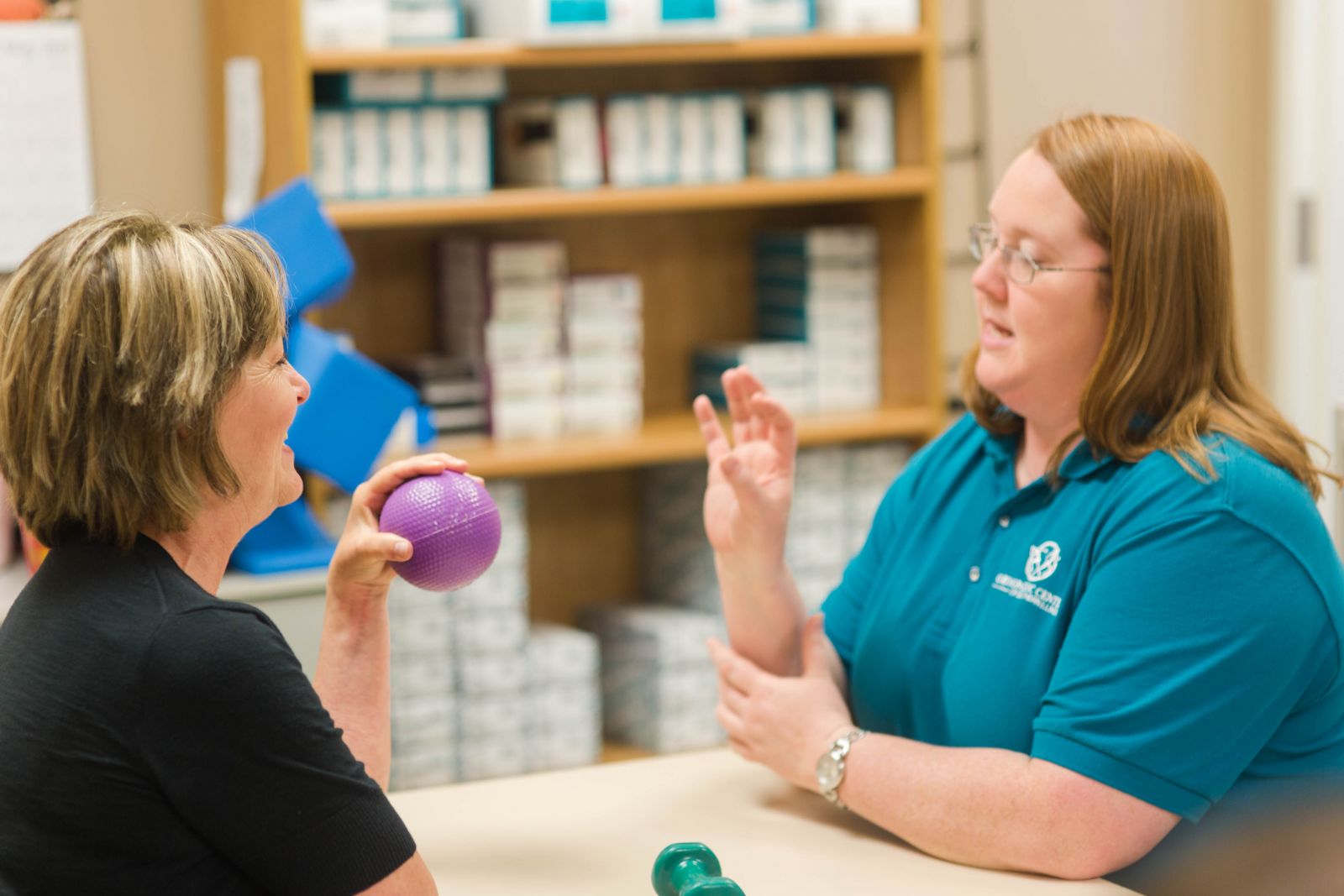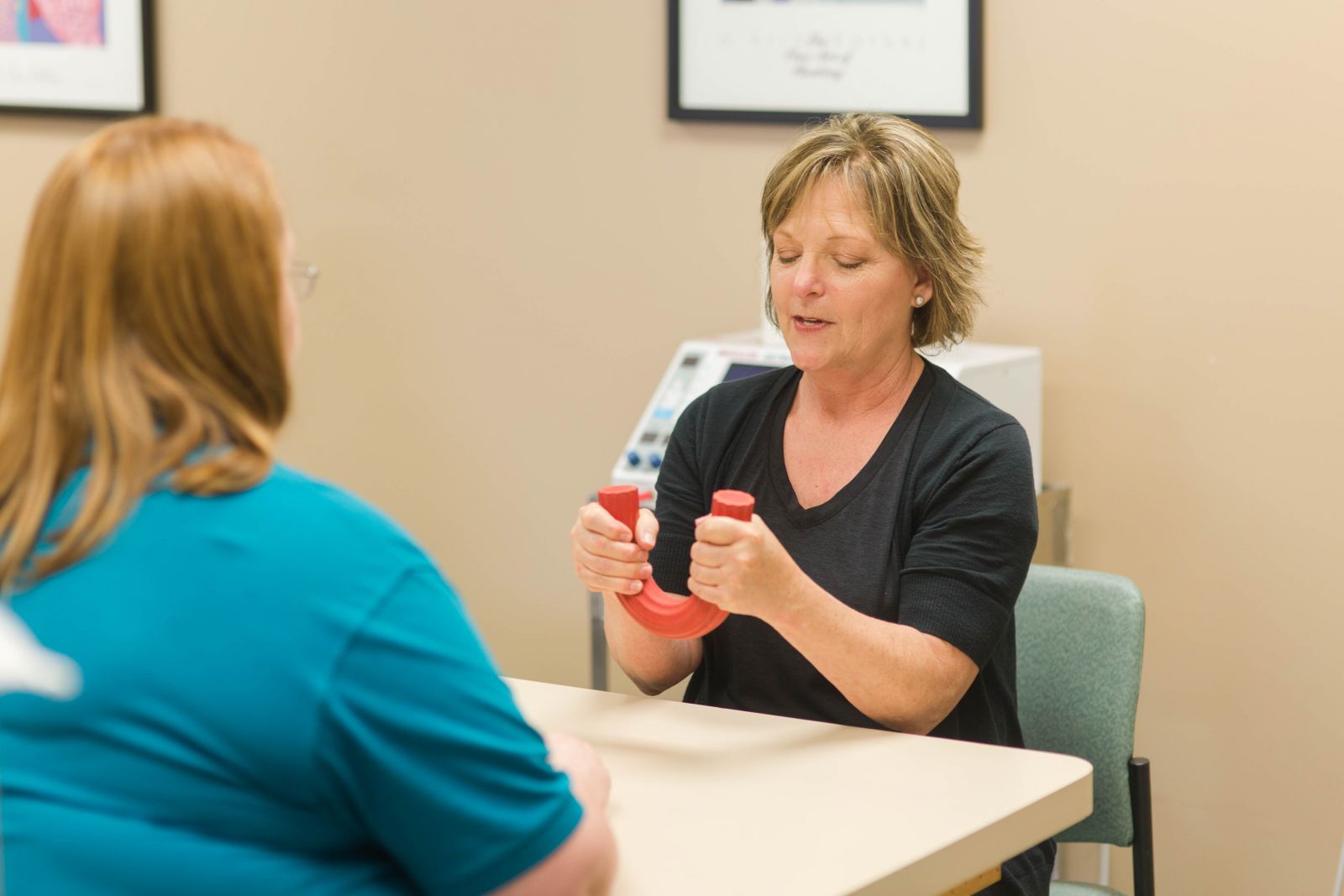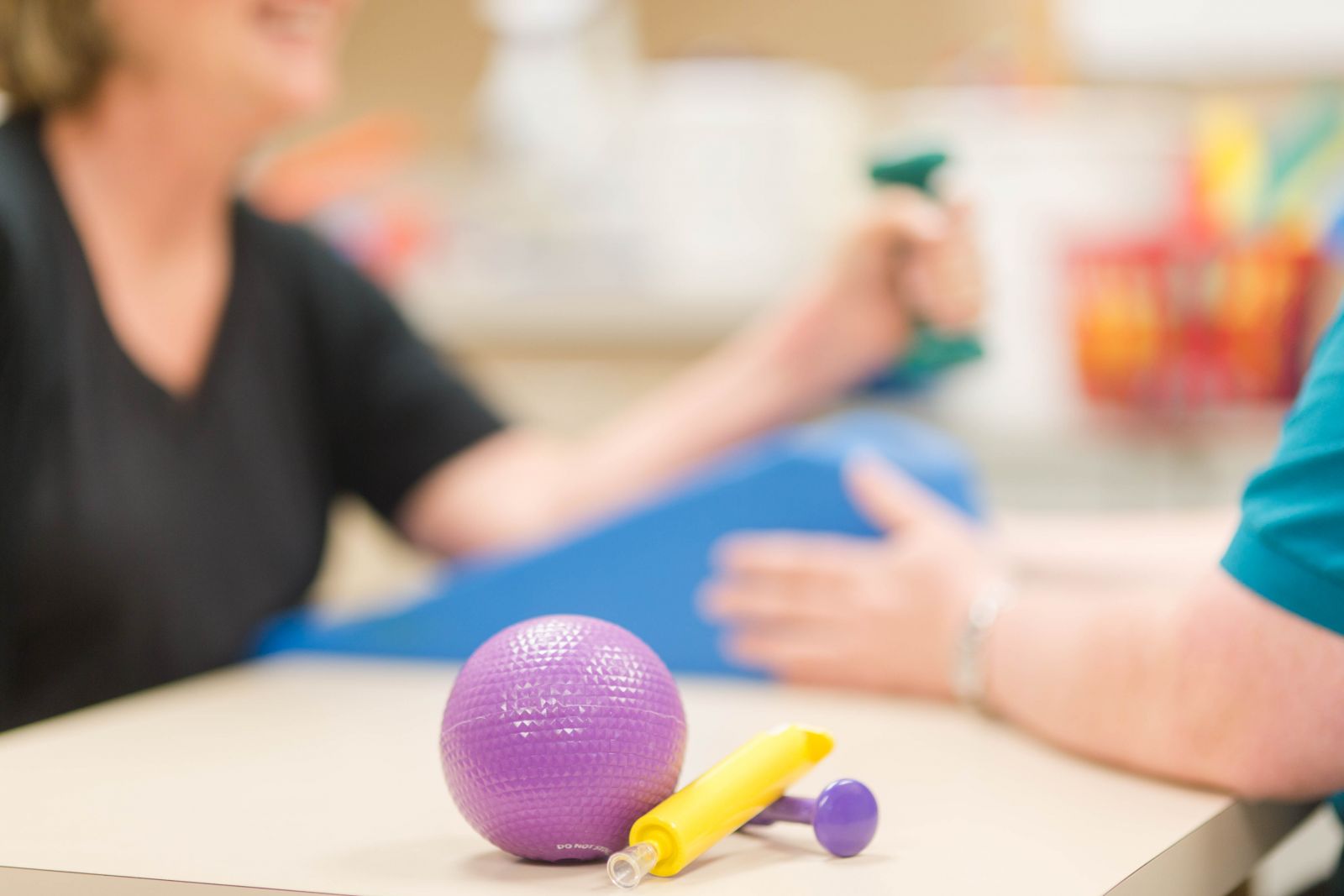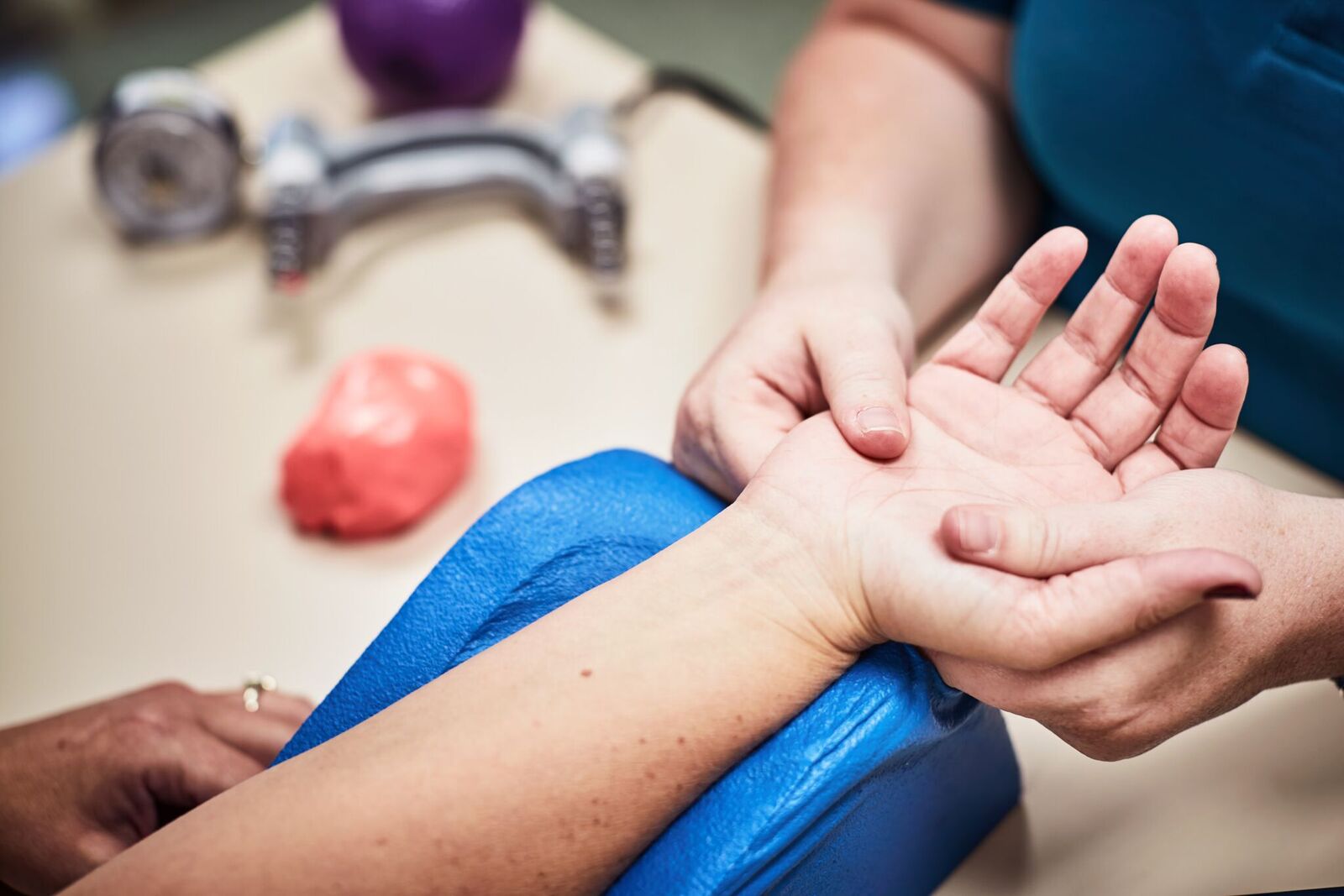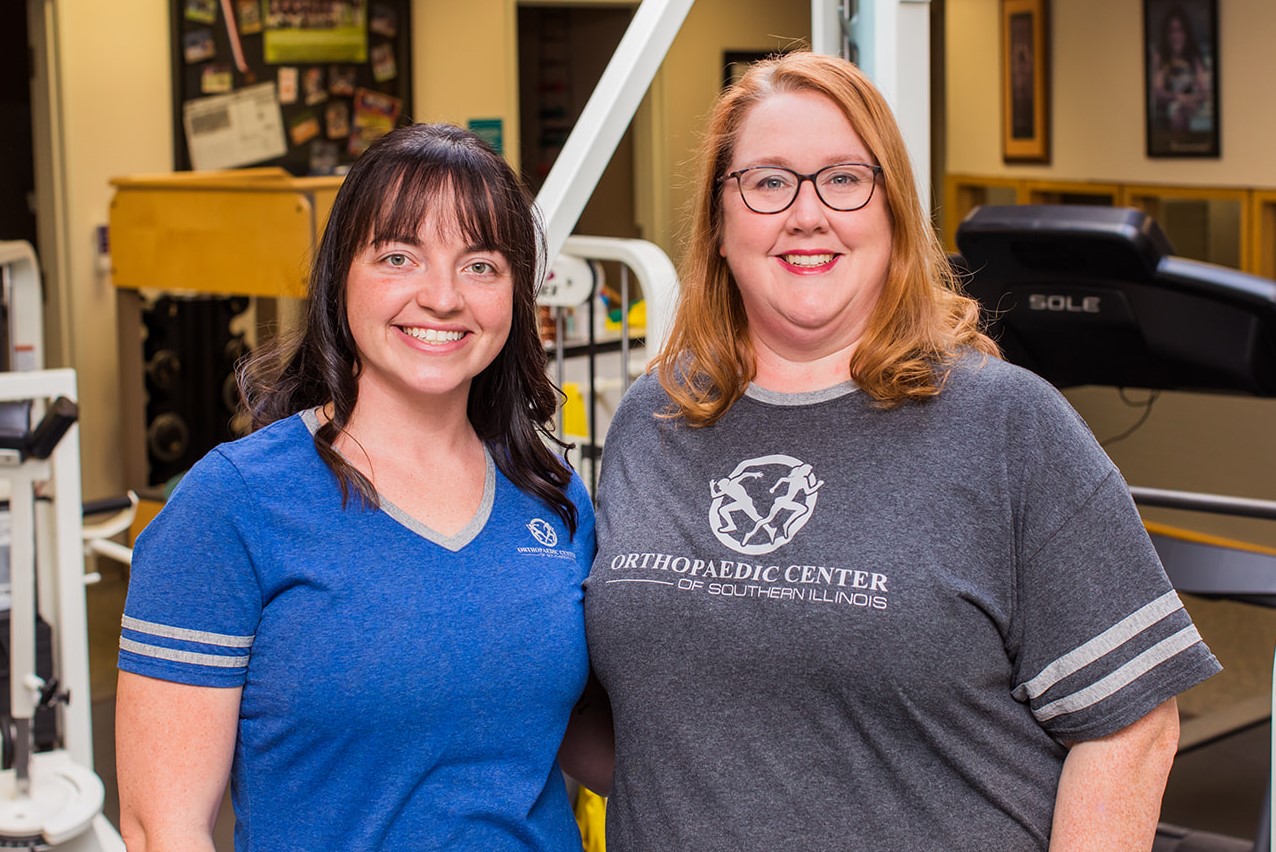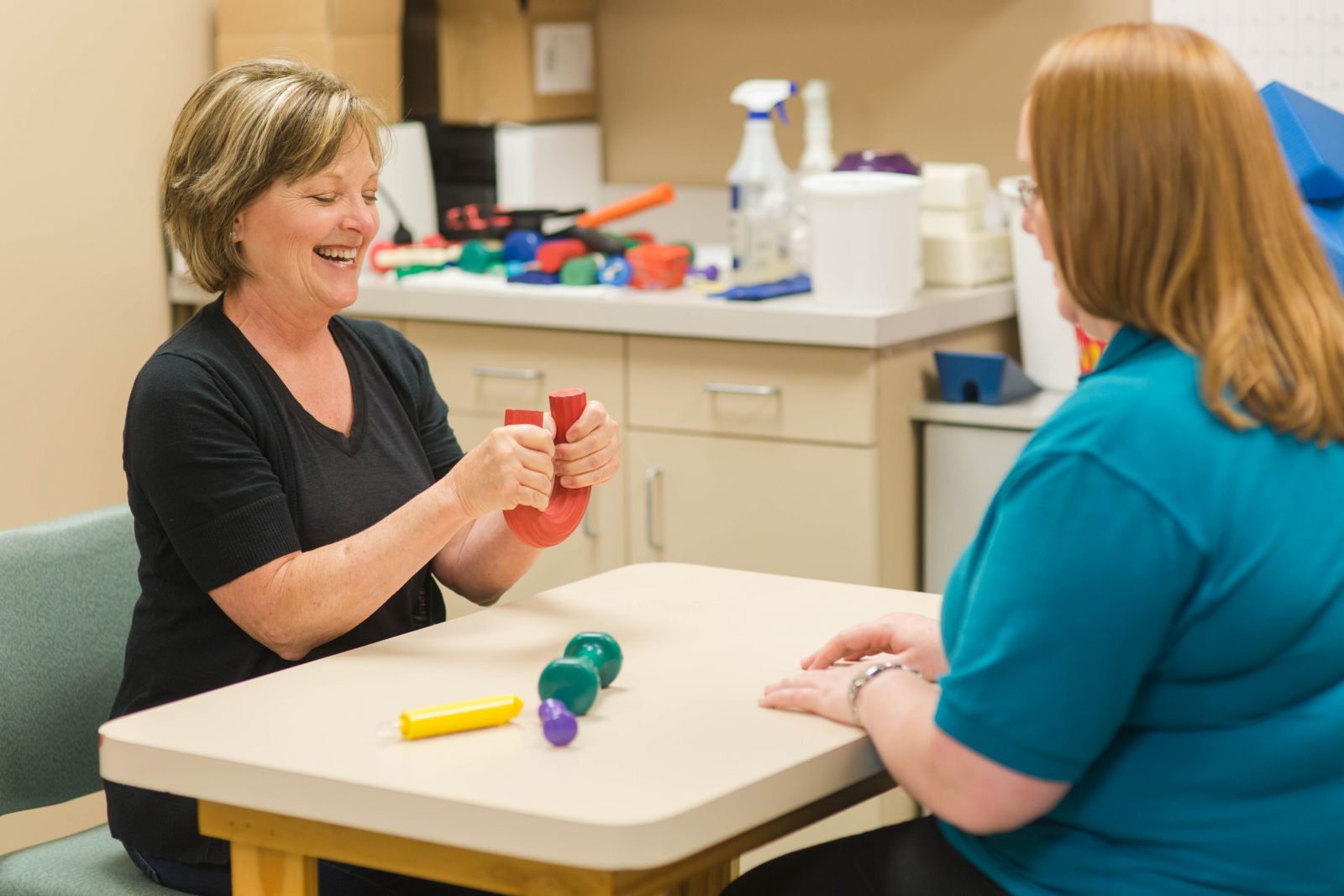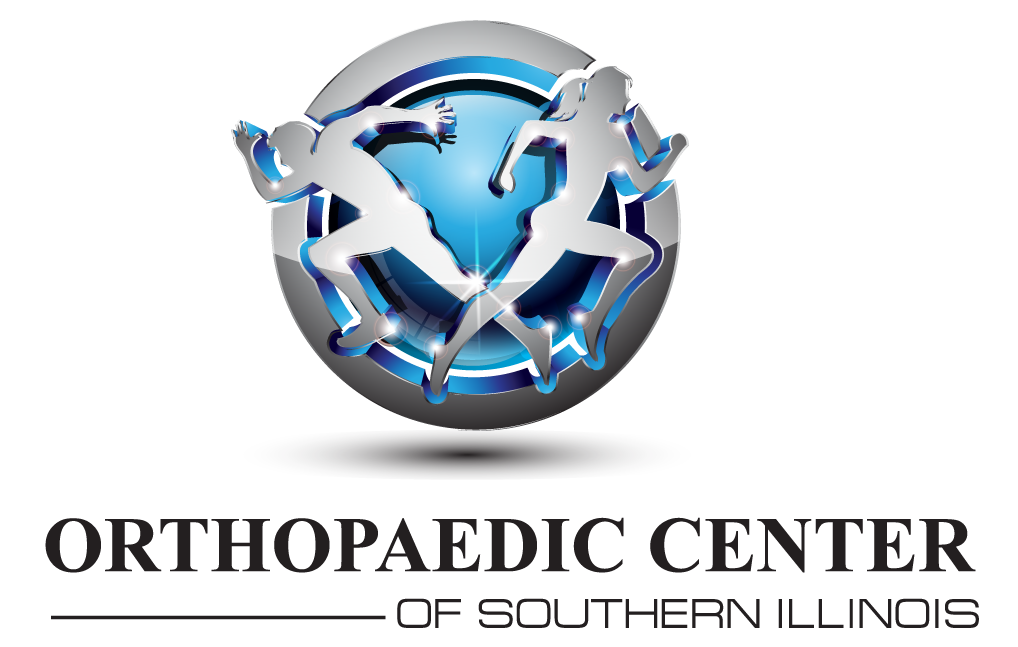Occupational Therapy
Occupational Therapists specialize in the evaluation, treatment, and education on conditions related to the hands and upper extremities. Occupational Therapy Rehabilitation includes post-operative rehabilitation, preventative, non-operative and conservative treatment. The role of an Occupational Therapist is to work with a client to help them achieve a fulfilled and satisfied state in life through the use of purposeful activity or interventions designed to achieve functional outcomes which promote health, prevent injury or disability and which develop, improve, sustain or restore the highest possible level of independence.
Role:
Occupational Therapists (OT's) help people of all ages to improve their ability to perform tasks in their daily living and working environments. They work with individuals who have conditions that are mentally, physically, developmentally, socially or emotionally disabling. They also help them to develop, recover, or maintain daily living and work skills. Occupational Therapists help clients not only to improve their basic motor functions and reasoning abilities, but also to compensate for permanent loss of function.
Hand Therapy:
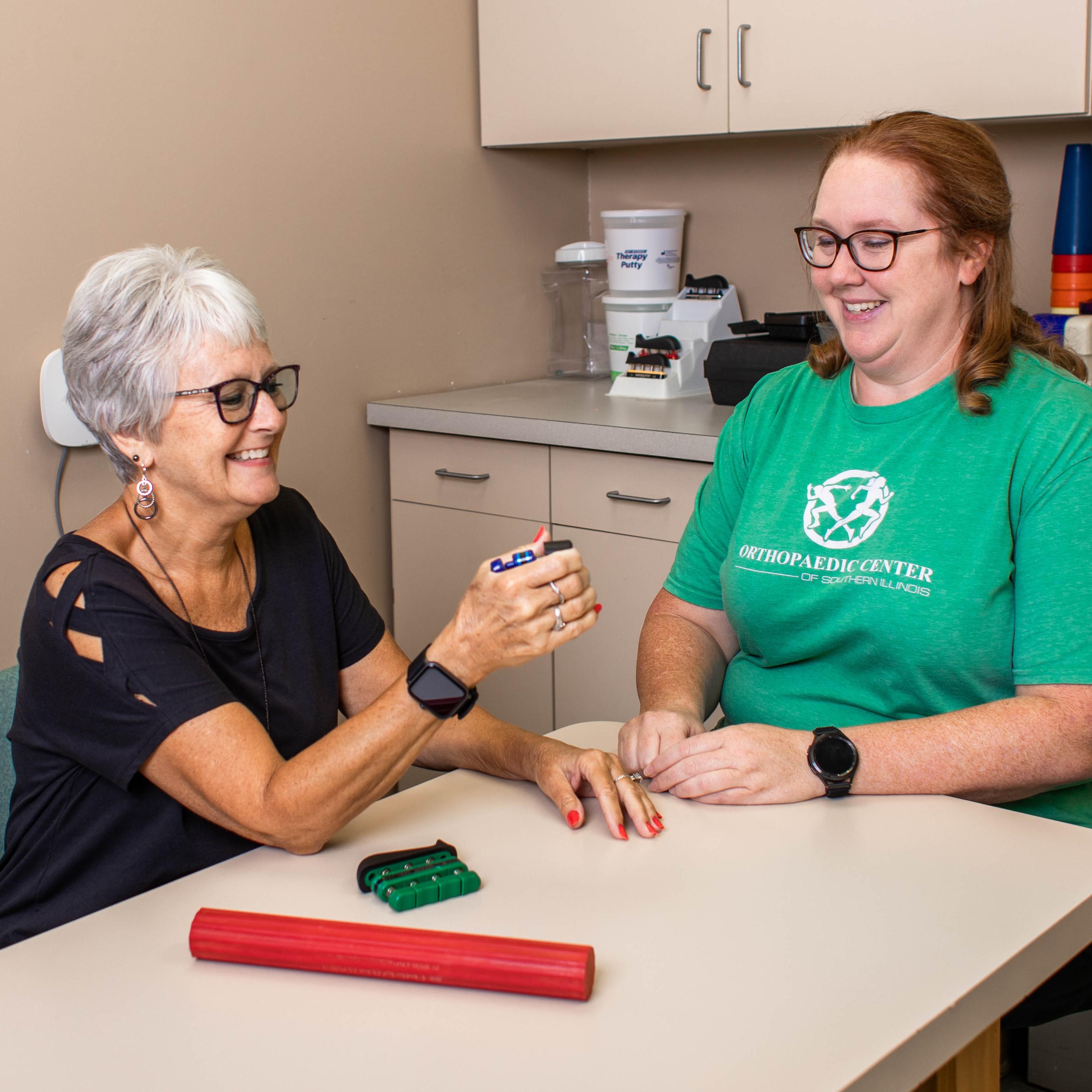
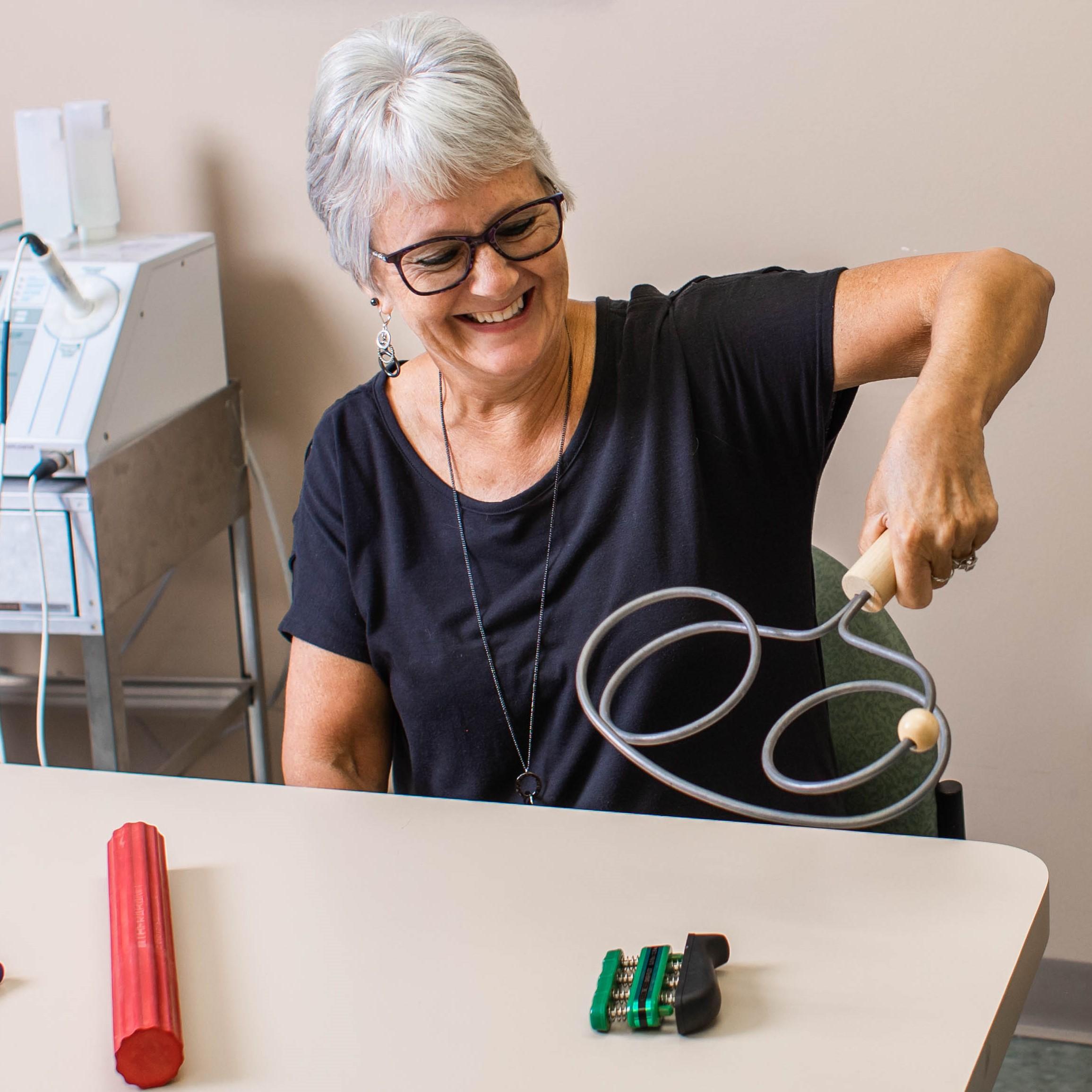
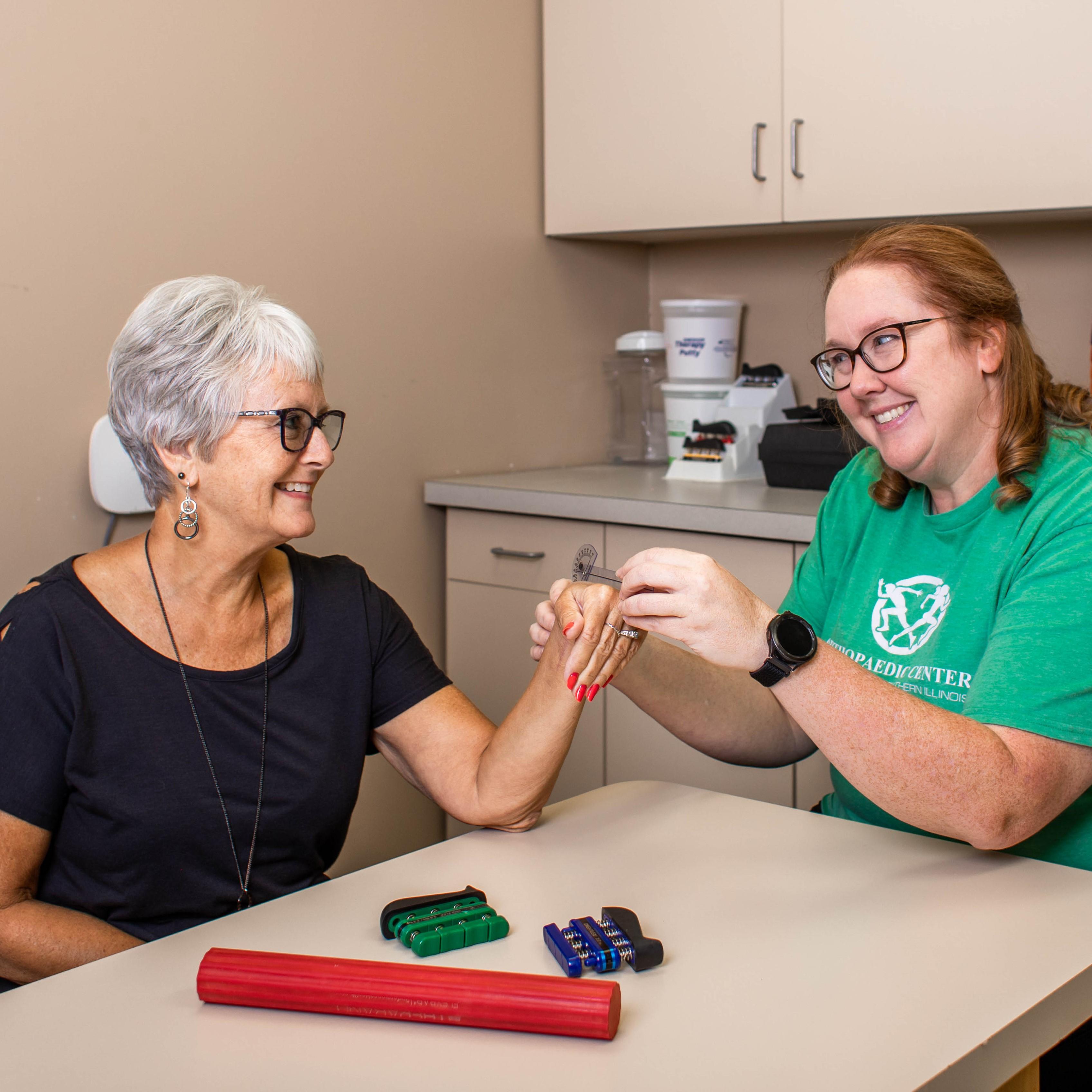
Occupational Therapy also plays a major role in the rehabilitation and recovery of patients who have hand or upper extremity injuries. They play a significant role in liasing with Hand Surgeon/Orthopaedic Surgeons and patients employers or case managers in providing the best client centered rehabilitation program. Occupational Therapists treats conditions ranging from soft tissue injuries such as Tennis Elbows to nerve neuropathies such as Cubital Tunnel Syndrome/ Carpal Tunnel Syndrome, as well as basal joint and thumb pain. An array of upper limb assessments are utilized to provide a treatment care that is effective and appropriate. Treatment modalities such as orthosis/splints, soft braces and education are some of the common treatment tools that an occupational therapist will use during treatment. The Occupational Therapy professions goal focuses on occupation as means and ends and their aim of returning patients to them performing their daily function.
Post-operative Rehabilitation Includes:
- Shoulder surgeries, edema Mobilization, flexor and extensor tendon repairs, wound care, scar management, CMC arthritis, Dupuytren's, MP arthroplasty.
Non-operative Rehabilitation Includes:
- Pain Management, desensitization, sensory re-education, exercise programs, splint fabrication for prevention or correction of injury, daily lifestyle training through adapted methods and equipment, conditioning prior to returning to work, therapeutic modalities.
Please see our testimonial page for more information about Occupational Therapy.
